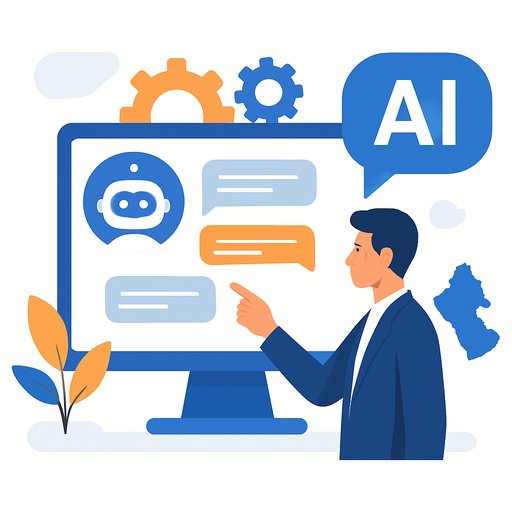Decagon's AI Concierge: Speed, Efficiency, and a Clear Playbook for Enterprise Support Teams
"A lot of companies are willing to try things in a way they weren't willing to before." That line captures why enterprise support is having a moment. Jesse Zhang, co-founder and CEO of Decagon, makes it clear: AI isn't a side tool. It's becoming the front line of customer service for banks, airlines, telecoms, and big tech.
Decagon positions itself as an AI customer service agent-a conversational UI that talks to customers, integrates with your stack, and drives hard metrics. The promise is simple: lower cost to serve, better CX, and faster iteration without ballooning headcount.
What Decagon Is (and Isn't)
Decagon's AI agents slot into your CRM and telephony stack, then handle routine conversations end to end. They run 24/7, don't churn, and don't need traditional ramp time.
This isn't a rip-and-replace project. It layers on top of what you already use and hands off to humans when a case needs judgment or empathy.
Why Enterprises Are Buying Now
C-suites and boards are pushing AI mandates, and customer service is the fastest win. Digital-native teams jumped first, but the surprising story is how fast large enterprises moved.
The driver: a clear cost and quality case. AI takes the repeatable work; humans focus on exceptions and high-emotion moments.
What Results Look Like
According to Zhang, successful deployments show "60, 70 percent" cost reduction in contact centers. That's the headline KPI for most buyers.
The second metric is CX: higher satisfaction from faster, consistent answers. Over time, better engagement compounds into revenue.
Independent analyses echo this trajectory: automation drives containment and lowers cost to serve when paired with good design and governance.
Why This Matters for Support Leaders
- Capacity planning changes: AI handles volume spikes without overtime.
- Team shape changes: fewer generalists on basic tickets, more specialists on policy, QA, and complex cases.
- Quality improves through consistency, while humans handle escalations and empathy-first interactions.
- Ops shifts from "hire and train" to "configure, measure, iterate."
Implementation Playbook (First 90 Days)
- Prep (Weeks 0-2): Audit top 20 intents by volume x cost. Clean the knowledge base. Document policies, refunds, credits, and edge-case rules. Define escalation criteria.
- Integrate (Weeks 2-4): Connect CRM, ticketing, telephony, auth, and payment systems. Set up PII redaction and audit logging. Establish sandbox and production environments.
- Safeguards (Weeks 3-5): Create human-in-the-loop triggers, compliance checks, and approval flows for money-moving actions. Add tone and brand style guides.
- Pilot (Weeks 5-7): Launch 1-2 high-volume, low-risk intents (e.g., order status, appointment changes). Start with chat, then add phone/IVR if results hold.
- Iterate (Weeks 6-10): Review analytics daily. Fix unknown intents, update KB gaps, and tune escalation thresholds. Expand to 5-10 intents.
- Scale (Weeks 10+): Add channels, languages, and higher-stakes workflows with approvals (refunds, claims, cancellations).
KPIs That Actually Move the Needle
- Containment rate: % of issues resolved by AI without human handoff.
- Cost per contact: Track by channel and intent.
- AHT and resolution time: For both AI-only and AI-to-human handoffs.
- FCR and CSAT: Segment by intent to find gaps fast.
- Quality pass rate: Policy adherence, accuracy, and tone.
- Agent satisfaction: Are humans getting better work and clearer playbooks?
Product Approach That Works in Enterprise
Decagon leans into a productized model so non-technical owners can build flows, integrate, iterate, and analyze without waiting on engineering. That reduces backlog and shortens time to value.
For support teams, this means creating "conversation owners" alongside QA and policy specialists. Your weekly release notes shift from scripts and macros to intents, guardrails, and approvals.
Team Design: The AI Ops Pod
- Conversation designer: Structures intents, prompts, and tone.
- Policy specialist: Encodes rules, exceptions, and compliance.
- QA lead: Samples dialogs, flags drift, manages playbooks.
- Data analyst: Owns dashboards, cohorting, and experiment design.
- Support lead: Owns escalation paths and staffing for edge cases.
Cadence matters. Weekly reviews on containment, escalations, and policy changes keep the system sharp.
Vendor Evaluation Checklist
- Native integrations with CRM, ticketing, telephony, and identity.
- Secure actions: role-based approvals, PII redaction, audit trails.
- Knowledge connectors and fallback behavior when content is missing.
- Analytics: intent discovery, confusion triggers, CSAT by segment.
- Handoff quality: context transfer, transcript sharing, and SLA adherence.
- Compliance posture: SOC 2, GDPR, PCI where applicable.
- TCO clarity: platform, usage, implementation, and change-management costs.
Where This Is Headed
Zhang expects agents to talk to agents: rescheduling flights, coordinating deliveries, and fixing issues before customers notice. These systems won't just react; they'll take initiative, including purchases and upsells within clear limits.
To be ready, expose stable APIs, keep logs auditable, and set business rules for money and identity. Your AI should know when to act, when to ask, and when to hand off.
A Practical Starting Point
- Pick 3 intents that clog your queue and cost you the most.
- Define hard guardrails for refunds, credits, and identity.
- Launch a narrow pilot, measure daily, and expand by data-not by instinct.
If you want structured upskilling for support roles working with AI agents, explore curated options here: AI courses by job.
Your membership also unlocks:





